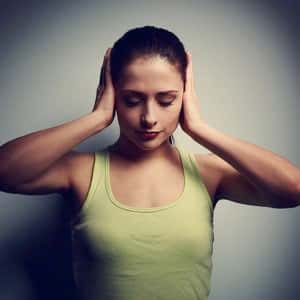
People with tinnitus or ringing in the ears suffer invisible harm to their quality of life. The constant hissing, chirping or buzzing can make it hard to function during the day and sleep is often disturbed. Such patients may seek respite from the sounds in their heads by using a white noise generator.
Is White Noise the Way to Treat Tinnitus?
A review of the effects of white noise suggests that this tempting short-term solution may have negative consequences over the long term (JAMA Otolaryngology Head and Neck Surgery, Aug. 30, 2018). In animal studies, white noise exposure disrupts neurological organization. In summary, the reviewers conclude that unstructured noise can produce the same unfortunate brain changes as tinnitus and slow processing of acoustic signals like words.
What Else Can You Do?
The scientists writing this review suggest several approaches that would take advantage of the neuroplasticity of the brain and produce more positive brain changes than white noise. They recommend sound therapy using structured acoustic signals such as music or speech. Other approaches that can benefit sufferers include computerized brain training and timing-sensitive conditioning to produce long-term synaptic depression. In the future, vagus nerve stimulation may be practical. Animal studies are positive, but current methods of vagus nerve stimulation are invasive.
The authors note:
“A noisy environment produces a noisy brain.”
Consequently, they discourage random-noise generators for treating tinnitus as doing more harm than good. You may be interested in reading what we wrote some years ago about the Neuromonics Tinnitus Treatment that utilizes principles of neuroplasticity to reorganize the brain.

